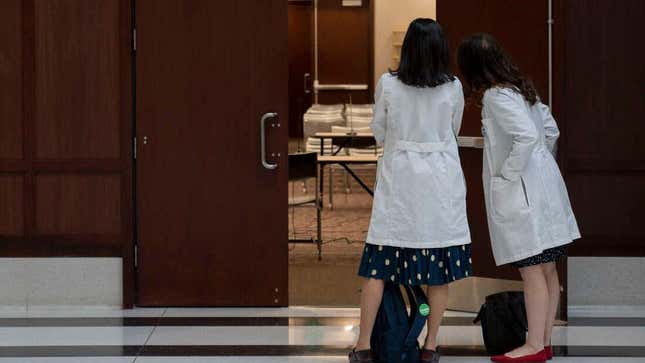Doctor Who Gave Abortion to 10-Year-Old Rape Victim Receives $3,000 Fine, Letter of Reprimand
Indiana's Medical Board—appointed by the state's anti-abortion governor—said Dr. Caitlin Bernard violated privacy laws by talking to the media, which is legal.
AbortionPolitics

Dr. Caitlin Bernard, the Indiana doctor who provided abortion care to a 10-year-old rape victim from Ohio, received a $3,000 fine and letter of reprimand on Thursday evening after a day-long hearing before Indiana’s Medical Licensing Board. The majority of the board voted to penalize Bernard after determining that she had violated privacy laws by speaking to the media about the case—which she did to raise awareness of literal children having to travel out of state to obtain life-saving health care.
This outcome comes nearly a year after Bernard’s story entered the national spotlight, when she spoke to a reporter about the care she had provided to a child rape victim from Ohio who had been denied care by her state’s near-total abortion ban. At the time, Ohio’s ban—currently blocked in court—had just taken effect after the fall of Roe v. Wade, and it offered no rape exceptions.
As the child’s story went viral and sparked national outrage, top Republicans including Indiana Attorney General Todd Rokita (R) and others very publicly questioned the story’s veracity and the credibility of a child rape victim. After the child’s alleged rapist was arrested, Rokita falsely claimed Bernard hadn’t reported the abortion and the girl’s sexual assault to the state (again, this very much wasn’t true). Nonetheless, Rokita’s office began investigating Bernard and last fall filed the complaint with the state Medical Licensing Board, leading the charge to target and punish the doctor.
-

-

-

-

-

-

-

-

-

-

-

-

-

-

-

-

-

-

-

-

-

-

-

-

-

-

-

-

-

-

-

-

-

-

-

-

-

-

-

-









































